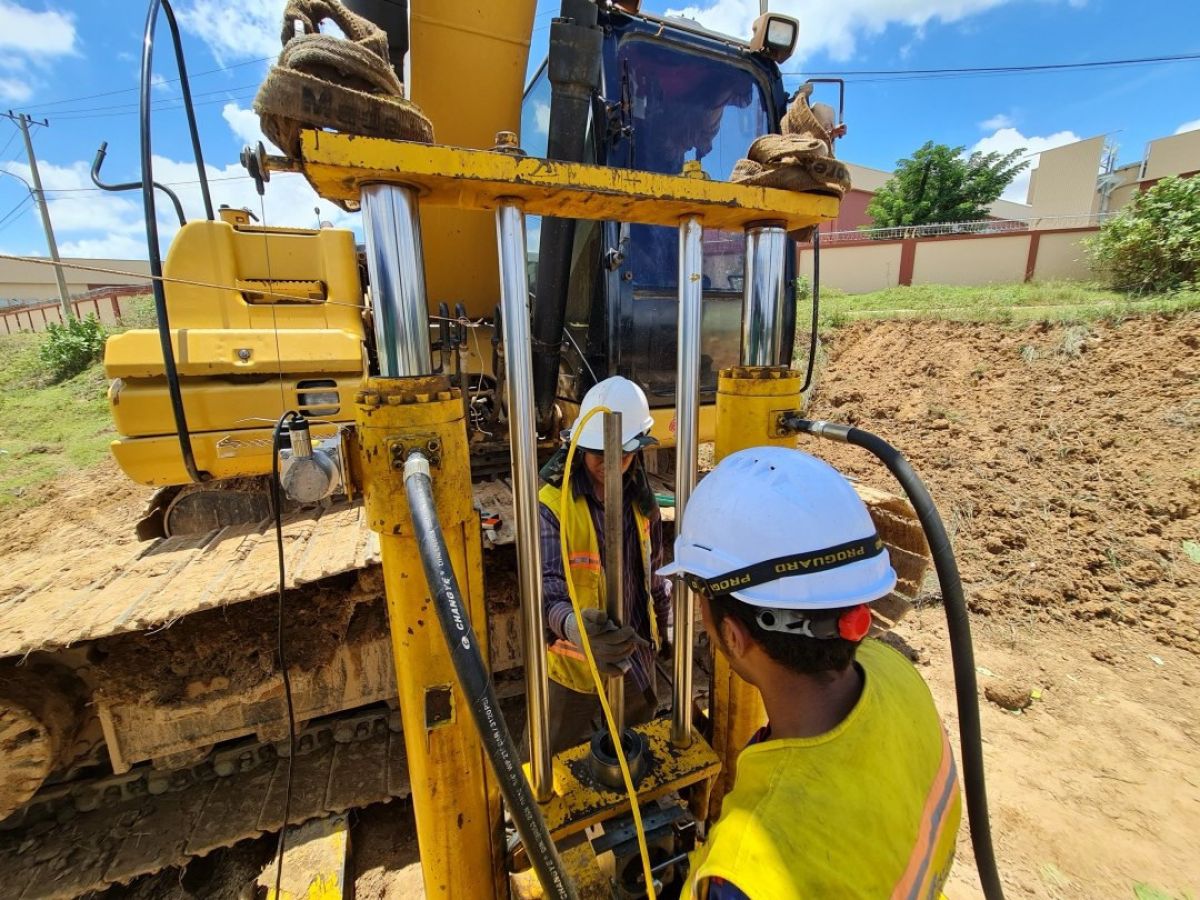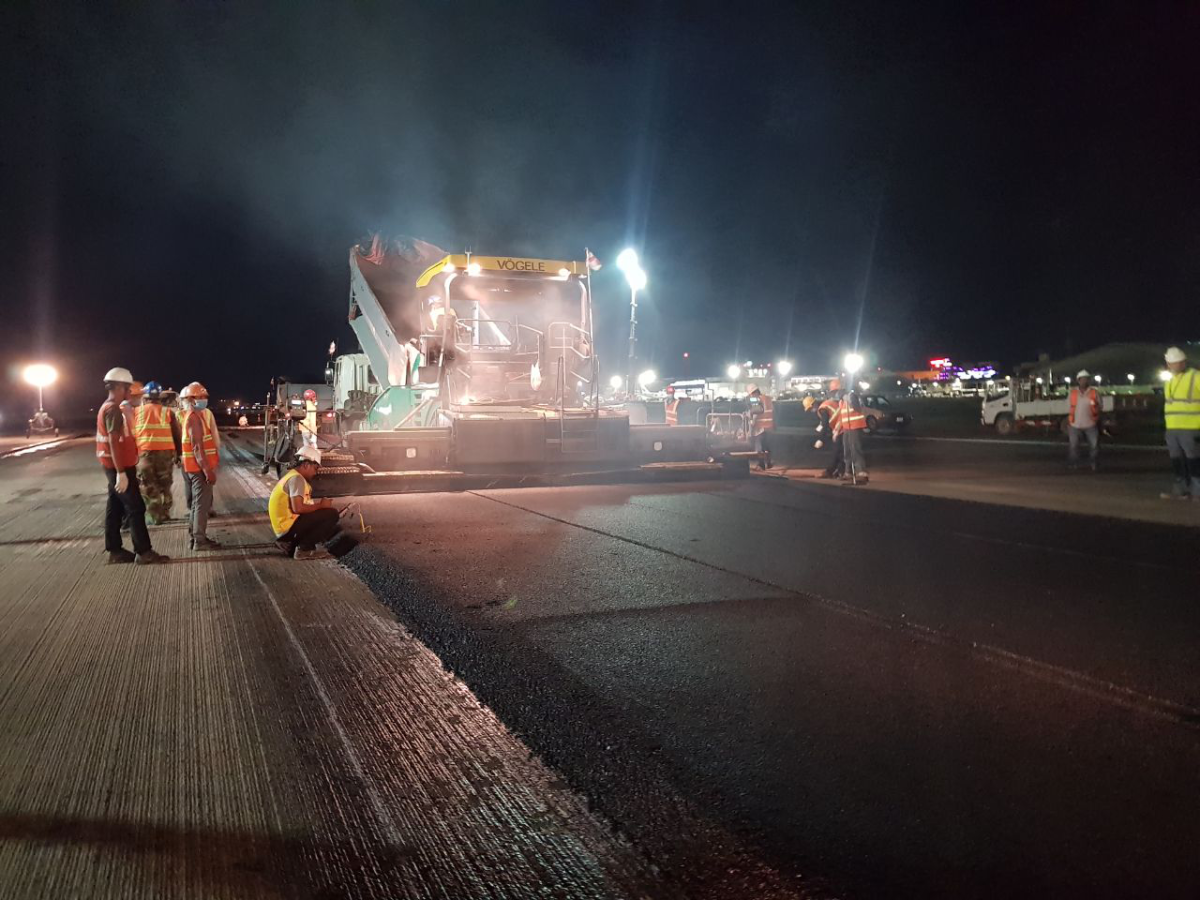
Cone Penetration Testing (CPTu)
Cone Penetration Testing (CPTu) is a method used to determine the geotechnical properties of subsoil layers and soil stratigraphy in situ. It is performed by pushing a cylindrical steel probe (piezo-cone) into the ground at a constant rate of 20 mm/s. While pushing, the test provides continuous profiling of stratigraphy and several soil parameters are measured such as tip resistance (qc), friction on the cone sleeve (fs), and pore water pressure (u2). The data is uploaded and displayed in real-time in graphical format on a laptop computer.
We highly recommend this method as it immediately provides accurate soil data and characteristics compared to boreholes. However, CPTu cannot test in rock layers. In those cases, we employ a drilling rig to conduct boreholes in rock.

